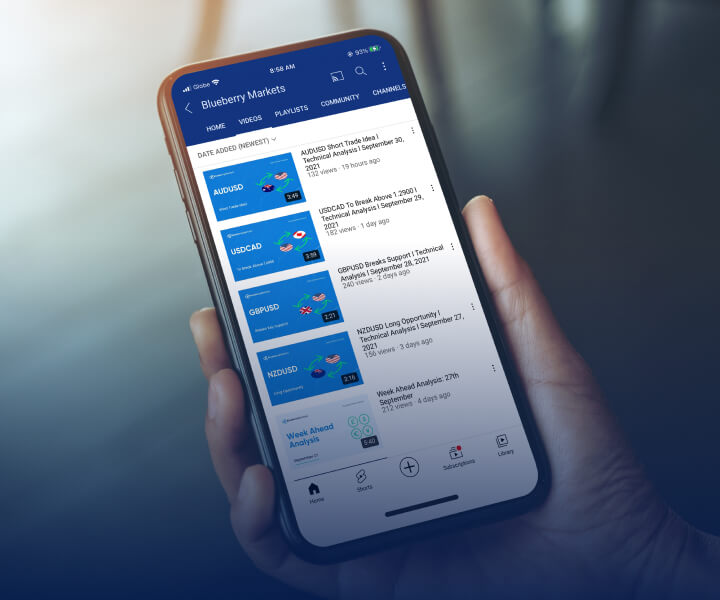Paying commissions for forex trading is similar to getting professional assistance and essential tools to navigate the complexities of the currency markets. Traders entrust brokers with executing trades, providing market insights, risk management tools, and access to advanced technology, ensuring efficient trades and informed decisions.
In this article, we will learn why brokers charge. Commission and what traders get in return for the same.
What are commission fees in forex trading?
Commission fees are the charges levied by brokers for executing trades in the forex market. These fees are crucial in determining the overall cost of trading and can significantly impact a trader’s gains.
Brokers primarily employ two types of fee structures:
- Spreads: It refers to the difference between a currency pair’s ask and bid prices. Brokers earn their revenue by slightly widening this spread, effectively imposing a fee on each trade. This fee is typically measured in pips, representing the smallest price movement in a currency pair.
- Commissions: Traders pay a flat fee per trade in addition to the spread. Some brokers offer raw spreads with a separate commission fee. While brokers offering commission-based accounts may advertise narrower spreads, traders must consider the commission costs in their overall trading expenses.
Different types of commission structures in forex
Fixed commission per trade
Fixed commission per trade is a consistent fee charged for every forex trade executed, regardless of trade size or frequency.
Variable commission based on trade size
These commission rates fluctuate depending on the trade size, often increasing with larger trade volumes.
Percentage-based commission
These commissions are calculated as a percentage of the total trade value, varying proportionally with the size of the trade.
Tiered commission structures
Tiered commission structures are the ones that vary based on trading volume or account tiers, with lower rates typically offered for higher trading volumes.
Volume-based discounts
Volume-based discounts are the reduced commission rates offered to incentivize higher trading volumes, encouraging increased activity.
Performance-based commissions
A performance-based commission structure is one tied to the trader’s performance or gains, where higher gains may result in higher commission fees.
Introducing broker (IB) commissions
These commissions are paid to intermediaries who refer clients to the broker, typically earning a percentage of the referred client’s trading activity.
Why do brokers charge commissions?
Brokers charge commissions primarily to generate revenue and cover the costs associated with facilitating trades and providing services to traders. These commissions serve as a source of income for brokers, allowing them to maintain and improve their trading platforms, offer customer support, conduct research, and manage regulatory compliance.
Additionally, commissions incentivize brokers to execute trades efficiently and provide quality services to attract and retain clients. By charging commissions, brokers align their interests with those of traders, as both parties take advantage of proper trading activities. Ultimately, commissions are a fundamental aspect of the brokerage business model, enabling brokers to sustain their operations while offering valuable services to traders in the forex market.
What do traders get when they pay for commissions?
Fast trade execution
Forex brokers execute trades swiftly and accurately on behalf of traders for commissions per trade, ensuring that orders to trade currencies are carried out efficiently in the forex market. This involves transmitting traders’ orders to liquidity providers or the interbank market, where the actual trading of currencies occurs.
Market research and analysis
Brokers offer comprehensive market research and analysis for a commission, including fundamental analysis, technical analysis, and sentiment analysis. They provide insights into economic indicators, geopolitical events, and other factors influencing currency movements. This information helps traders decide when to enter or exit trades.
Customer support
Forex brokers offer responsive and knowledgeable customer support to assist traders with account setup, platform navigation, technical issues, and other inquiries. Customer support channels typically include phone, email, live chat, and sometimes in-person support for more complex matters.
Risk management tools
Brokers provide risk management tools to help traders mitigate potential losses and manage their exposure to market volatility. These tools may include stop-loss orders, limit orders, trailing stops, and margin requirements. By paying a commission for these tools, traders can protect their capital and limit downside risk.
Trading technology
Brokers offer advanced trading platforms, charting tools, and order management systems to facilitate efficient and seamless trading experiences. These platforms are designed to execute trades quickly, provide real-time market data, and offer a range of analytical tools to aid in decision-making.
Regulatory and compliance
Brokers adhere to regulatory requirements and compliance standards set by relevant authorities in the jurisdictions where they operate on a commission model. This includes protecting client funds, maintaining segregated accounts, and providing transparency in trading practices. Compliance ensures the integrity and trustworthiness of the broker and protects traders’ interests.
Customization
Brokers offer customizable trading solutions to cater to traders’ diverse needs and commission preferences. This may include offering different trading accounts (standard, mini, micro), flexible leverage options, and customizable trading conditions such as spreads and commissions.
Premium account services
Forex brokers often offer premium services for a fee to cater to traders seeking extra assistance and tools. These services can include advanced trading platforms, personalized account management, research and analysis resources, premium trading signals, educational materials, priority customer support, access to exclusive instruments, reduced trading costs, and managed account options.
Access to MetaTrader
Access to MetaTrader platforms, such as MT4 and MT5, is facilitated through brokers, who provide this service for a fee. While demo accounts can be accessed without a broker, trading real markets requires signing up with a broker first. Brokers offer access to MetaTrader platforms as part of their services for a fee.
High-frequency trading (HFT) services
Brokers offer access to high-frequency trading strategies and technologies for traders seeking to capitalize on short-term market inefficiencies. HFT involves executing a large number of trades at ultra-fast speeds at a commission, often exploiting small price differentials or arbitrage opportunities in the market.
Institutional services
Brokers cater to institutional clients such as hedge funds, asset managers, and corporations by offering specialized trading services, research, and execution capabilities tailored to institutional requirements. This may include access to prime brokerage services, direct market access (DMA), and customized trading solutions for large-scale trading operations at a commission.
Navigating forex commissions for optimal trading performance
Paying commissions in forex trading offers access to crucial services and tools that enhance trading efficiency and decision-making. However, overlooking commission structures or excessive trading can inflate trading costs, impacting gains. Hence, understanding and managing commission expenses are vital for optimizing trading outcomes and maximizing returns in the forex market.
Disclaimer: All material published on our website is intended for informational purposes only and should not be considered personal advice or recommendation. As margin FX/CFDs are highly leveraged products, your gains and losses are magnified, and you could lose substantially more than your initial deposit. Investing in margin FX/CFDs does not give you any entitlements or rights to the underlying assets (e.g. the right to receive dividend payments). CFDs carry a high risk of investment loss.

 ภาษาไทย
ภาษาไทย
 Tiếng Việt
Tiếng Việt

